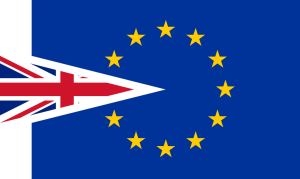
In a historic referendum, Britain voted to leave the European Union (EU) in what’s referred to as a Brexit, sending shockwaves across Europe and global markets into a tailspin.
Adding to the political turmoil and uncertainty, Prime Minister David Cameron announced that he would be resigning by October. Cameron was the leading voice for the “Remain” campaign and is stepping down after voters ignored his arguments to remain in the EU.
Ryszard Czarnecki of Poland, Vice President of the European Parliament, called the vote “a bad day for Poland” and said a Brexit will “weaken” the EU in many ways, including its relations with Russia.
Czarnecki noted that on an internal level, France and Germany will strengthen.
News of the controversial vote sent global markets reeling and the pound plunging to historic lows. Sterling tumbled to its lowest point against the dollar in decades.
Emerging markets, including the zloty, were also weakened by news of the vote. Officials in Poland argue that Britain’s exit from the EU will have sharply negative effects on the European and British economies.
Witold Waszczykowski, Poland’s Foreign Minister, says Britain will remain as a chief ally for Poland, despite the vote to leave the EU.
There are approximately 850,000 Poles working and living in Britain.
Waszczykowski warned that Brexit may cause a domino effect, with other member countries “blackmailing” the bloc and threatening to hold their own referendums.

Poland joined the EU in 2004. Since then, roughly two million Poles have left the country in search of higher paying jobs. Many landed in the U.K., where the pay is often four times higher than in their home country.
Poles are the largest non-British nationality living in the country. Poland’s National Bank estimates that Poles send home over £728m per year, helping to drive consumption in many areas of the country.
For the estimated 850,000 Poles in Britain, especially those who just moved to the country, the future is still uncertain. Poles, and other immigrants, must live in Britain for five years before they can apply for permanent residency. The Polish Institute of International Affairs estimates that between 120,000 and 400,000 Poles arrived after 2012, meaning they would not be eligible for permanent residency. Those who arrived after 2012 would need to apply for a work visa and leave the country if rejected.
Over the next two years, Britain will be negotiating its new relationship with the European Union, and those negations will almost certainly have an effect on the working conditions for Poles living in the U.K.
In wake of the referendum’s results, the Polish newspapers asked if Poles would need visas or permits to work in Britain. The Rzeczpospolita ran the headline “The Great Cost of Britain” days after the vote, listing 10 potential disadvantages that included higher fees for students, work permits and the end of cheap flights between the two countries.
Poland President Andrzej Duda says new efforts must be made to prevent other countries from exiting the EU.
While Poland was largely in favor of the U.K. remaining in the EU, the exit may prove to be beneficial if more Polish workers return home with new skills.

